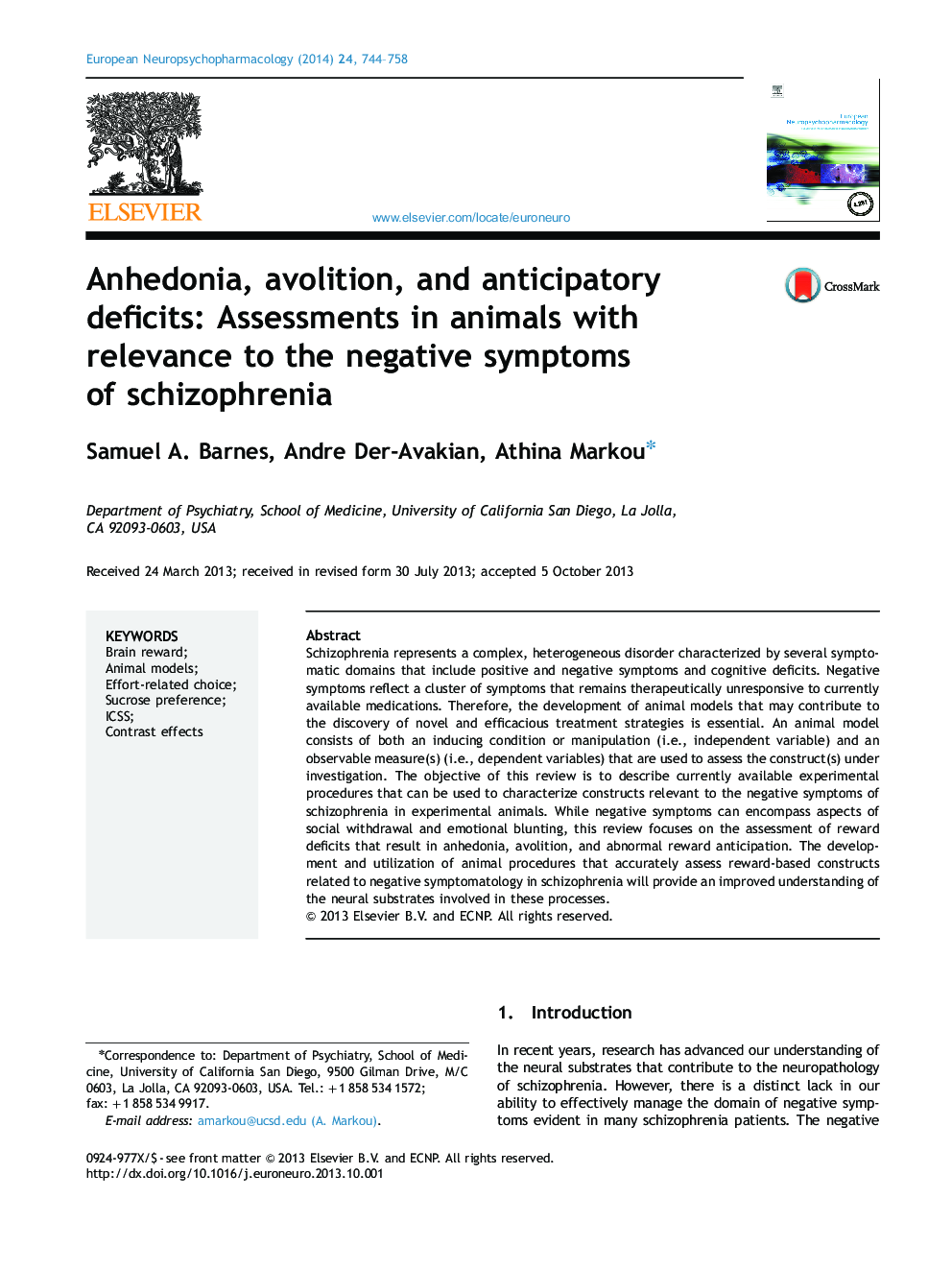| Article ID | Journal | Published Year | Pages | File Type |
|---|---|---|---|---|
| 10299016 | European Neuropsychopharmacology | 2014 | 15 Pages |
Abstract
Schizophrenia represents a complex, heterogeneous disorder characterized by several symptomatic domains that include positive and negative symptoms and cognitive deficits. Negative symptoms reflect a cluster of symptoms that remains therapeutically unresponsive to currently available medications. Therefore, the development of animal models that may contribute to the discovery of novel and efficacious treatment strategies is essential. An animal model consists of both an inducing condition or manipulation (i.e., independent variable) and an observable measure(s) (i.e., dependent variables) that are used to assess the construct(s) under investigation. The objective of this review is to describe currently available experimental procedures that can be used to characterize constructs relevant to the negative symptoms of schizophrenia in experimental animals. While negative symptoms can encompass aspects of social withdrawal and emotional blunting, this review focuses on the assessment of reward deficits that result in anhedonia, avolition, and abnormal reward anticipation. The development and utilization of animal procedures that accurately assess reward-based constructs related to negative symptomatology in schizophrenia will provide an improved understanding of the neural substrates involved in these processes.
Related Topics
Life Sciences
Neuroscience
Biological Psychiatry
Authors
Samuel A. Barnes, Andre Der-Avakian, Athina Markou,
